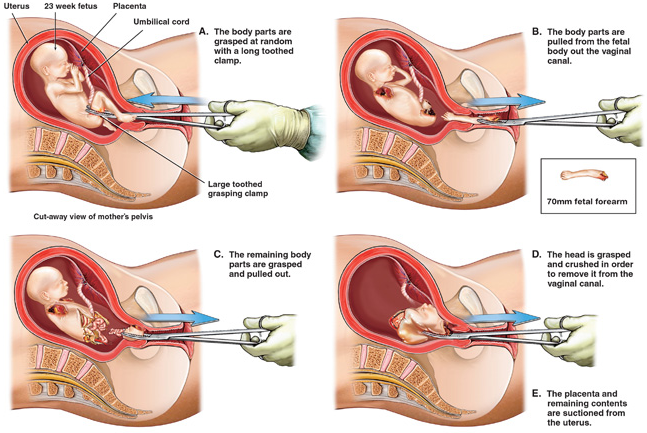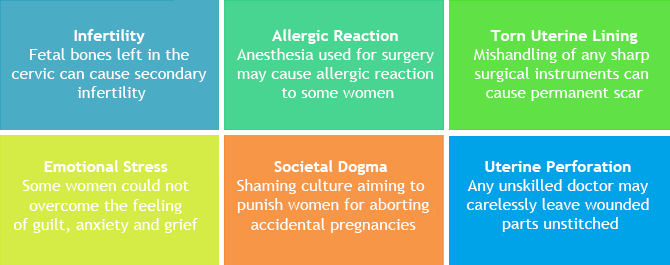
Myths and misunderstandings exist about the procedure — If you read the news, watch TV, go to the movies, or basically digest any kind of media, then you’ve probably been exposed to some misinformation about abortion. Those ‘horror stories’ run the gamut and are perpetuated by many groups who are against abortion, to scare you away from abortion.
Today we start an open conversation to spread awareness about the safe abortion and, in true myth-busting style, we’re going to debunk all of their lies until the very last one.
Lie #1: “Abortion kills an innocent soul”
There’s a lot of controversy out there about this argument, and it’s obviously the most commonly used statement. Whether it’s in politics, religion or moral debates, most people have heard this at one point or another. But let’s focus on the SCIENTIFIC FACT:
In the 1st trimester, an embryo develops into fetus after the end of the second month of gestation. In these early stages of pregnancy (when safe abortions are performed), the fetus is not yet a baby. It’s only a growing tissue with no organs.
Lie #2: “Abortion is dangerous”
Here’s the truth backed by research: abortion is safe. In fact, particularly the 1st-trimester abortion (up to 12th week), medical abortion is one of the safest procedure you can have. According to the clinical research by Guttmacher Institute, 1st-trimester abortions carry less than 0.05% risk of a major complication that would lead to a hospital visit.
And here’s something that will really blow your mind: abortion is significantly safer than childbirth. Researchers have found that the risk of death during childbirth is 14 times higher than from complications during an abortion.
Lie #3: “Abortion will risk the fertility of your future pregnancy”
This myth has no grounds in reality. Safe abortions, whether surgical or with medication, have nothing to do with infertility. You do not have to give up your hopes of having a family when you want to have one. In fact, a Government-funded research in Denmark has found that abortion does not increase the chances of infertility, ectopic pregnancies, miscarriages, or birth defects in future pregnancies.
Lie #4: “Abortion is irresponsible”
Many women who’ve had an abortion understand the basic need of a child: a quality life. They’ve made a courageous decision in order to focus on building a stronger relationship, steady income and career to support a family life. For them, they would rather not having a child than neglecting their children’s basic needs. Does it sound irresponsible to you?
Lie #5: “Too many abortions can cause social problems”
Without getting too subjective on this one, let’s get straight down to the facts. Abortion is one of a preventive solution to solve the increasing number of suicides, child abuses & abandoning cases. The question should then be about prevention, not about how these women chose to handle their situation. In fact, criminalizing abortion does not prevent the women from looking for other alternative (including dangerous ways) to terminate their unplanned pregnancies.
Lie #6: “Abortion medication causes a woman to suffer deadly pain”
That sounds like the plot from the bedtime horror story, doesn’t it? There’s a lot of graphic imagery associated with this story, but this is largely dramatized & manipulated by anti-abortion group to scare most women from having an abortion. Medical abortion only requires a woman to take a series of 2 medications (Mifepristone & Misoprostol) that induce a natural miscarriage.
Medical abortion has a similar effect as natural miscarriage. Since it has been approved by the FDA in 2000, nearly 2.4 million women in United States have opted for non-surgical abortion to terminate their pregnancy safely & naturally.
Lie #7: “People who have abortions regret it or experience a traumatic life”
Getting an abortion means different things to different people. Feeling grief or sadness are normal emotions after getting an abortion. The truth is, 95% of abortion patients felt relieved that they made the right decision, knowing that they can’t be a good mother at some point of their life.
Lie #8: “Only selfish immoral women have abortions”
The decision of every woman to determine her life path is based on her circumstances. This does not mean selfishness, it means maturity and courage to make a decision, even when obstacles stand in her way. A woman, her life, her body, her goals and her dreams are important too. A woman’s decision when she is ready to have children is in her own hands.
Lie #9: “Abortion causes breast cancer”
That’s only a rumor. Here’s the truth: In 1997, New England Journal of Medicine had published a research on 1.5 million women to prove such claim. The result found there’s no independent link between abortion and breast cancer. Since then, the American Medical Association and the American Cancer Society have equally agreed that there is no connection between abortion and breast cancer.
Lie #10: “The fetus is suffering pain during abortion”
Pain reception develops in the neocortex (brain part) of the baby, which is not formed until the 3rd trimester (27 weeks). This takes place long after most miscarriages have already occurred, and after safe abortions are performed within 14 weeks.

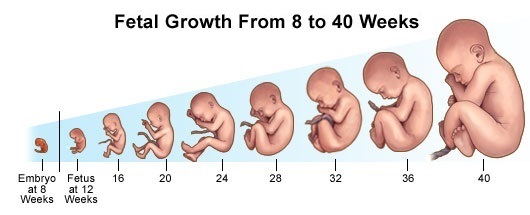
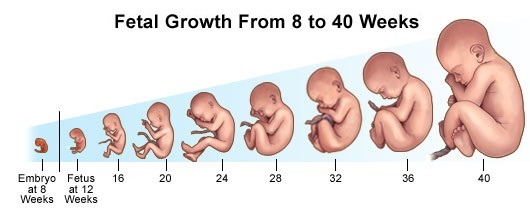






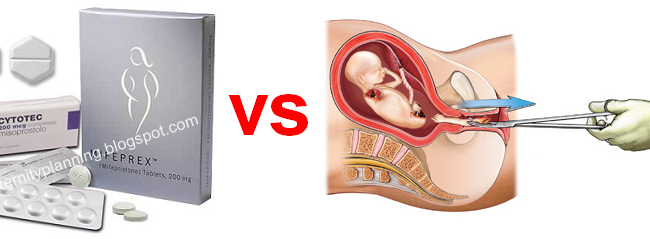



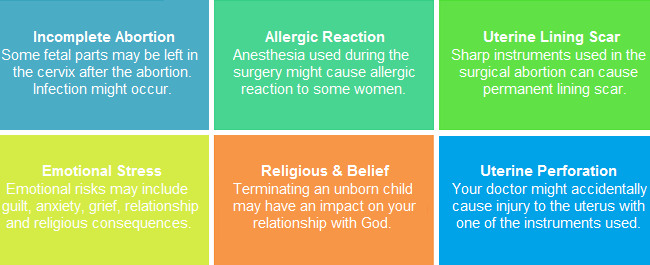
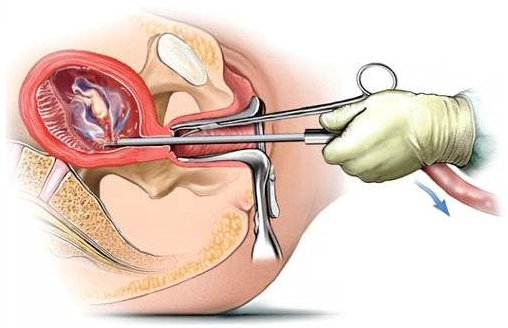 rA tenaculum (surgical instrument with long handles and a clamp at the end) is used to hold the cervix in place for the cervix to be dilated by absorbant rods that vary in size. The rods may also be put in a few days prior to the procedure. When the cervix is wide enough, a cannula, which is a long plastic tube connected to a suction device, is inserted into the uterus to suction out the fetus and placenta. The procedure usually lasts 10-15 minutes, but recovery can require staying at the clinic for a few hours. Your doctor will also give you antibiotics to help prevent infection.
rA tenaculum (surgical instrument with long handles and a clamp at the end) is used to hold the cervix in place for the cervix to be dilated by absorbant rods that vary in size. The rods may also be put in a few days prior to the procedure. When the cervix is wide enough, a cannula, which is a long plastic tube connected to a suction device, is inserted into the uterus to suction out the fetus and placenta. The procedure usually lasts 10-15 minutes, but recovery can require staying at the clinic for a few hours. Your doctor will also give you antibiotics to help prevent infection.